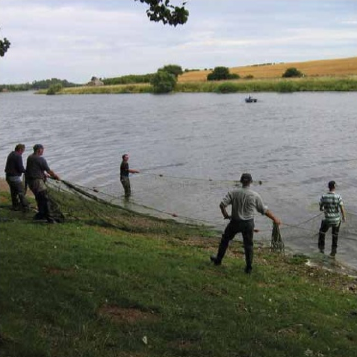Statement by Wenonah Hauter, Executive Director, Food & Water Europe
Brussels and Washington, D.C.— “This may be the last Christmas you’ll want to serve salmon to your family. Today, despite insufficient testing and widespread opposition, AquaBounty’s genetically modified (GM) salmon took the final step towards becoming the first FDA-approved GM food animal. Today the United States Food and Drug Administration released its draft Environmental Assessment, clearing the way for this transgenic organism to be approved by the agency under its new animal drug approval process. Food & Water Europe is far from alone in condemning this historic decision – one that disregards numerous polls revealing that the vast majority of consumers oppose GE salmon. Over 40 members of Congress and scientists at other federal agencies, including the National Oceanic and Atmospheric Administration and the U.S. Fish & Wildlife Service, have also voiced strong opposition to GE salmon, citing the lack of scientific rigor and expertise at the FDA.
“To add insult to injury, this product may be hitting the market without labelling in the U.S., meaning that concerned consumers who have demanded labelling will be unable to identify GM from non-GM salmon. Not only does this ignore their fundamental right to know what they are putting on their plates, it is simply bad for business, as many will avoid purchasing any salmon for fear it is genetically modified. How this avoidance will impact on EU producers, like those in Scotland, remains to be seen – GM crops have a long history of getting where they shouldn’t be, and now thanks to the FDA we will have to see if GM animals do, too.
“The FDA, which has been tasked with protecting consumer safety, failed to conduct the appropriate studies to determine if it is safe to eat or even if the fish can live up to AquaBounty’s claim of faster growth rates. And, by releasing an environmental assessment instead of a more thorough environmental impact statement, the FDA failed to fully consider the threat this controversial new fish could pose to wild fish populations.
“Congress can still keep FDA from unleashing this dangerous experiment. Bipartisan legislation would ban the commercialization of this controversial fish. Food & Water Europe will be examining legal options to force FDA to do a more thorough assessment of this new GE food animal. Although this latest FDA decision is a blow to consumer confidence, we encourage everyone to contact their MPs and MEPs to demand this reckless decision doesn’t lead to GM animals winding up in the European food chain.”
Food & Water Europe is the European program of Food & Water Watch, a nonprofit consumer organization based in the United States that works to ensure the food, water and fish we consume is safe, accessible and sustainable. So we can all enjoy and trust in what we eat and drink, we help people take charge of where their food comes from, keep clean, affordable, public tap water flowing freely to our homes, protect the environmental quality of oceans, force government to do its job protecting citizens, and educate about the importance of keeping shared resources under public control.
Contact: Eve Mitchell +44 (0)1381 610 740 [email protected]



